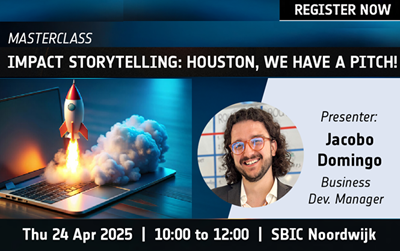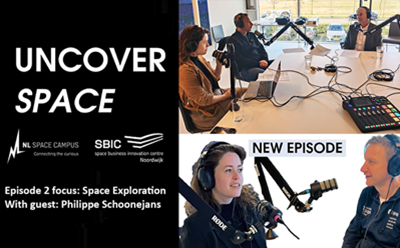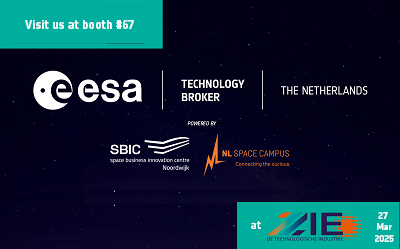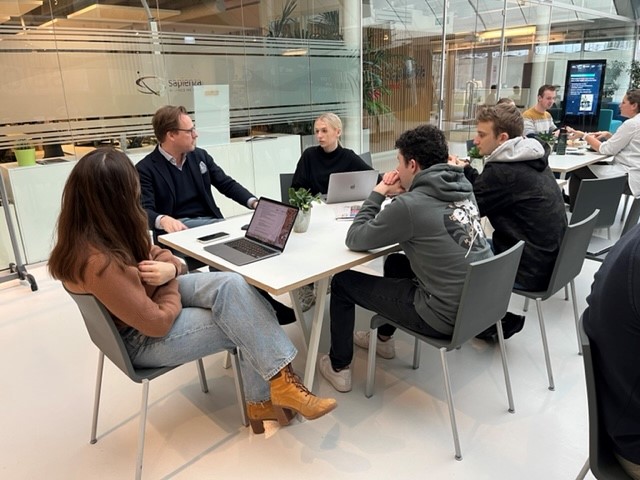
Energy, enthusiasm and business-savvy ideas were all flowing at SBIC Noordwijk at the start of February – this could only mean that it was time for the RSM Space Business Challenge 2024 to get underway! Every year, students on the Honours BSc course of the Rotterdam School of Management (RSM), Erasmus University take part in the 2-day programme organised by RSM’s associate professors René Olie and Willem Hulsink.
The students are learning about innovation and entrepreneurship in dynamic ecosystems, such as the space sector, so what better place to come and make use of their excellent business and marketing ideas to the “clients” that set the space business challenges – ESA BIC Noordwijk incubatee Turtle Island Space, ESA Technology Broker-appointed prize winner ZemQuest, LDE Space for Science & Society, NL Space Campus and SBIC.
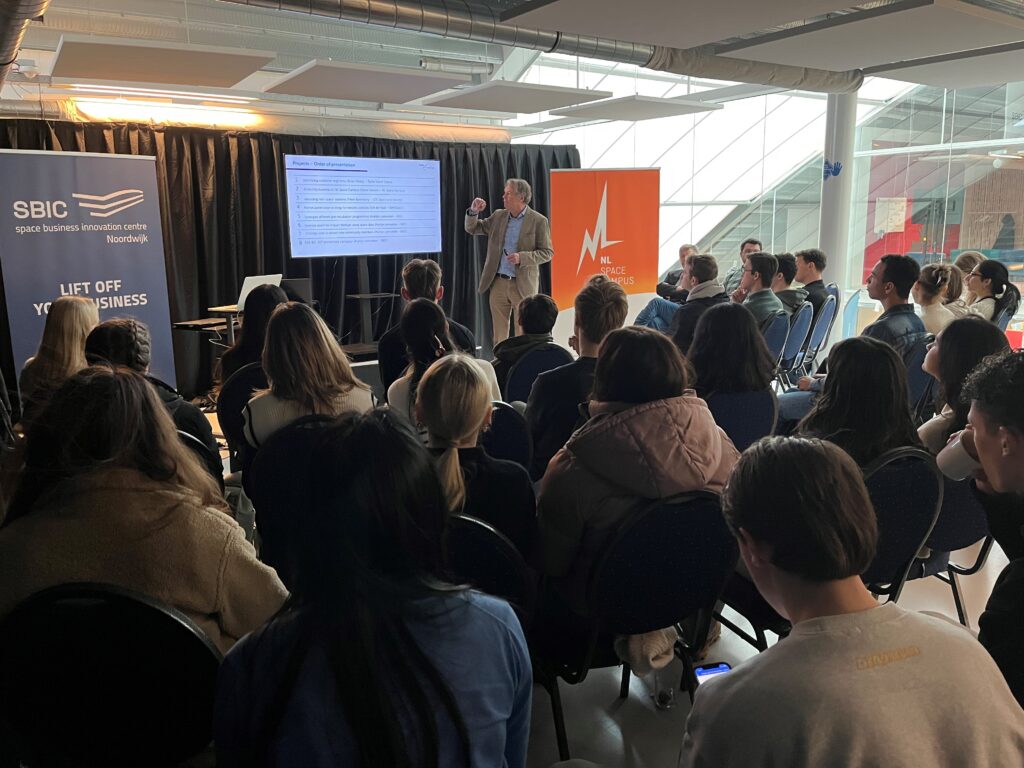
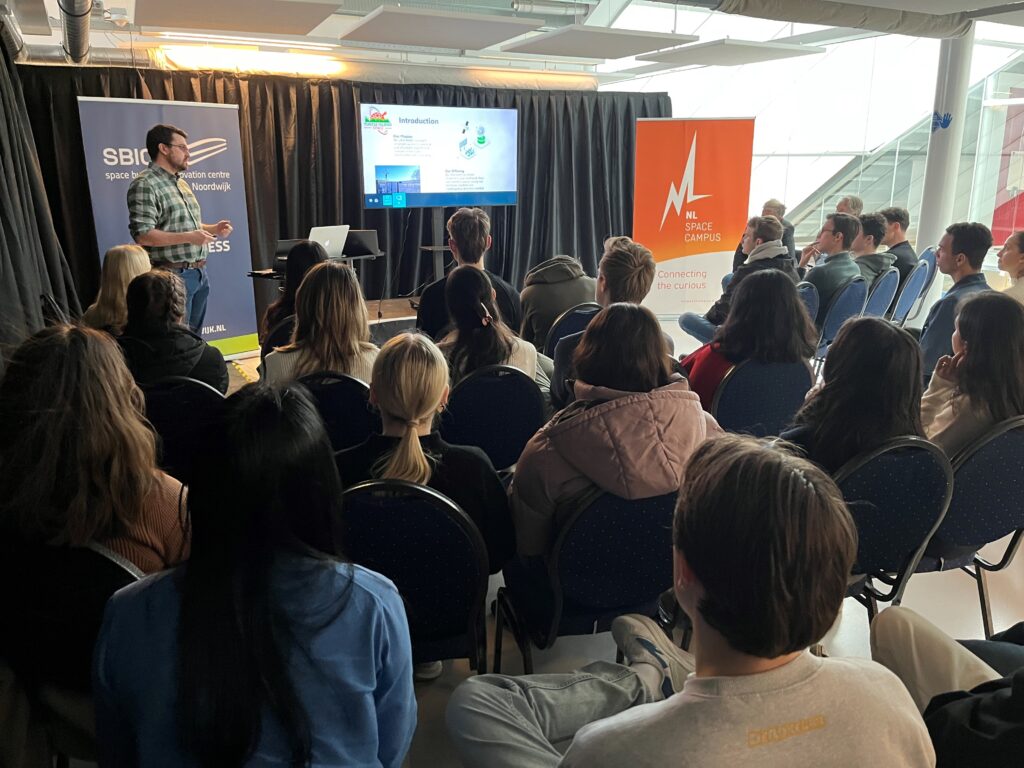
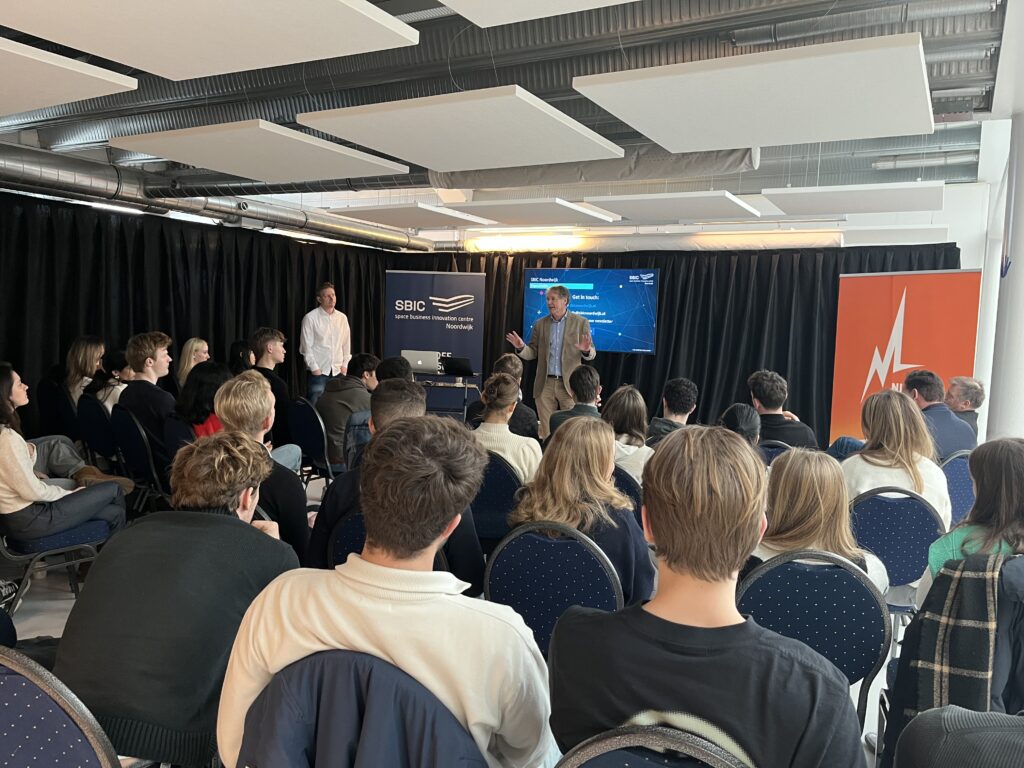
Dutch space tech on the agenda
The first day of the RSM Space Business Challenges 2024 began with presentations by representatives of the Dutch space network and entrepreneurial ecosystem to give an introduction of the space industry This event is an engaging way to broaden knowledge about businesses in the space sector, which many of the 40 business students may never have had any contact with before. Though, it was apt that on this day in question – Thursday 8 February – Dutch space tech was making the news. That very morning, the NASA climate satellite PACE (Plankton, Aerosol, Cloud, ocean Ecosystem) had launched from Cape Canaveral with an Dutch space tec on board. The instrument, built and developed in the Netherlands, will measure aerosol particles in the Earth’s atmosphere.
Read more about the Dutch instrument launched on the NASA climate satellite here
This important contribution to climate research is one example of how Dutch technology is being used in space, as explained by Martijn Leinweber (COO of SBIC Noordwijk and the ESA BIC programme manager) in his introduction to the student delegation. He explained about the startups that use space technology for upstream or terrestrial applications, which can have benefit for life on Earth. Here, in the Dutch business incubation centre of the European Space Agency, there are entrepreneurs developing innovative solutions. For example, Meteory is making environmental data more accessible – and working on real-world applications of satellite data for a more sustainable world – and Turtle Island Space (one of the challenge setters) is offering educational packages that give students experience of controlling a ground station (like the one on-site at SBIC Noordwijk) and downlinking their own satellite imagery.
Educational challenge: Identifying new customer segments was the focus of the challenge set by Turtle Island Space. The startup, headed-up by founder Brian Treacy, is currently incubated at ESA BIC Noordwijk and is already working to supply universities and space agencies with educational services. The company’s public outreach initiatives will allow students to get access to practical and affordable experiences relevant to the space industry through e-learning. turtleislandspace.com
Fresh perspectives
Every year at this event, a new cohort of students are assigned tasks covering the commercialisation of academic knowledge and designs by research centres, universities, R&D-based companies, startup firms and established companies in the space business cluster. The varied assignments that student teams could be invited to work on include:
- Analysing business opportunities in space and non-space markets
- Developing market communication strategies for different customer groups
- Helping companies and organisations to optimise their business models
- Developing ideas on how to add value for customers
- Collecting best practices from other industries
The students are provided with a dynamic and practical learning experience that prepares students for the challenges and opportunities in the evolving space industry. For the companies in this entrepreneurial ecosystem, the opportunity to work with such ambitious and bright bachelor students can offer a fresh perspective on their business and organisational initiatives.
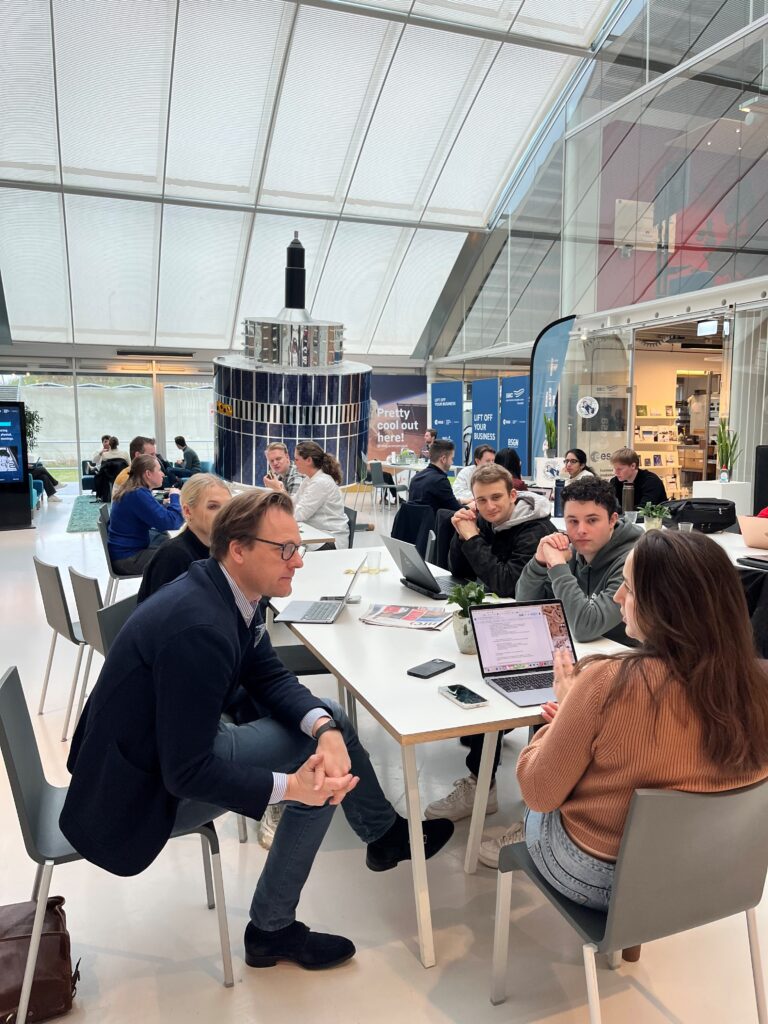
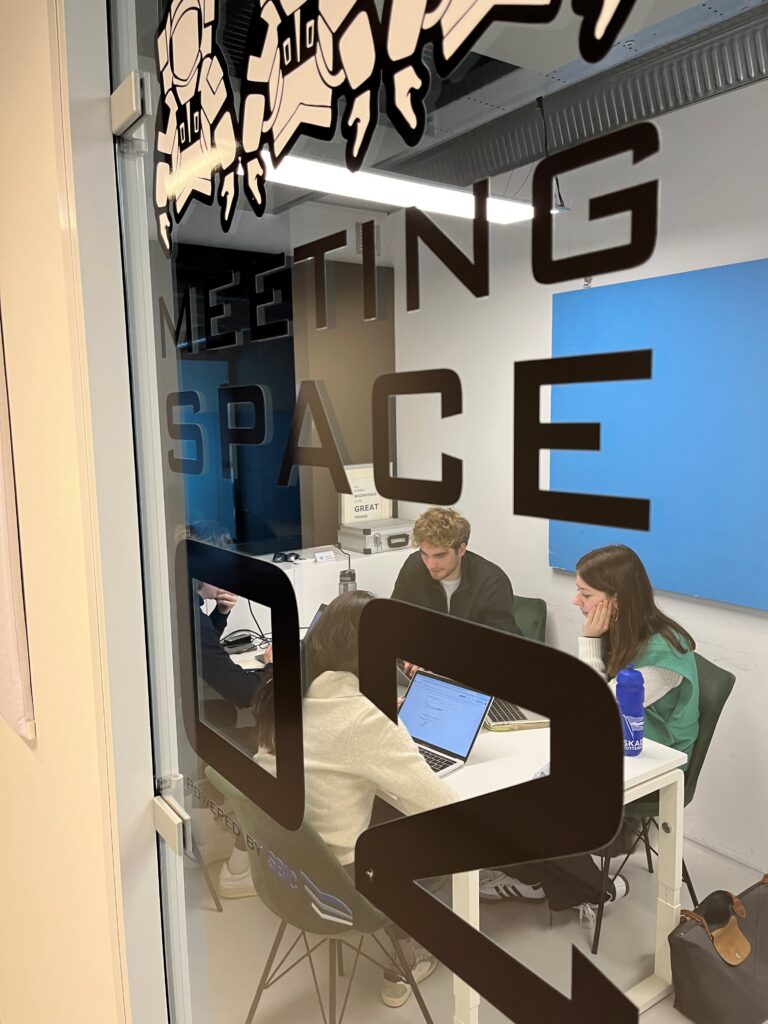
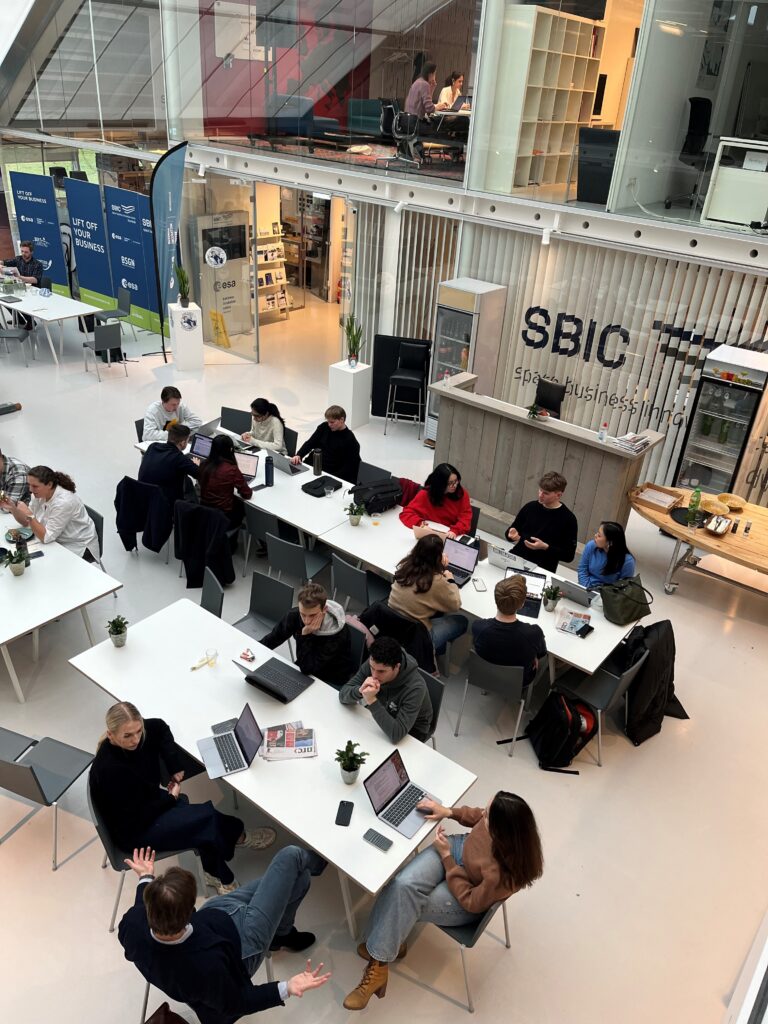
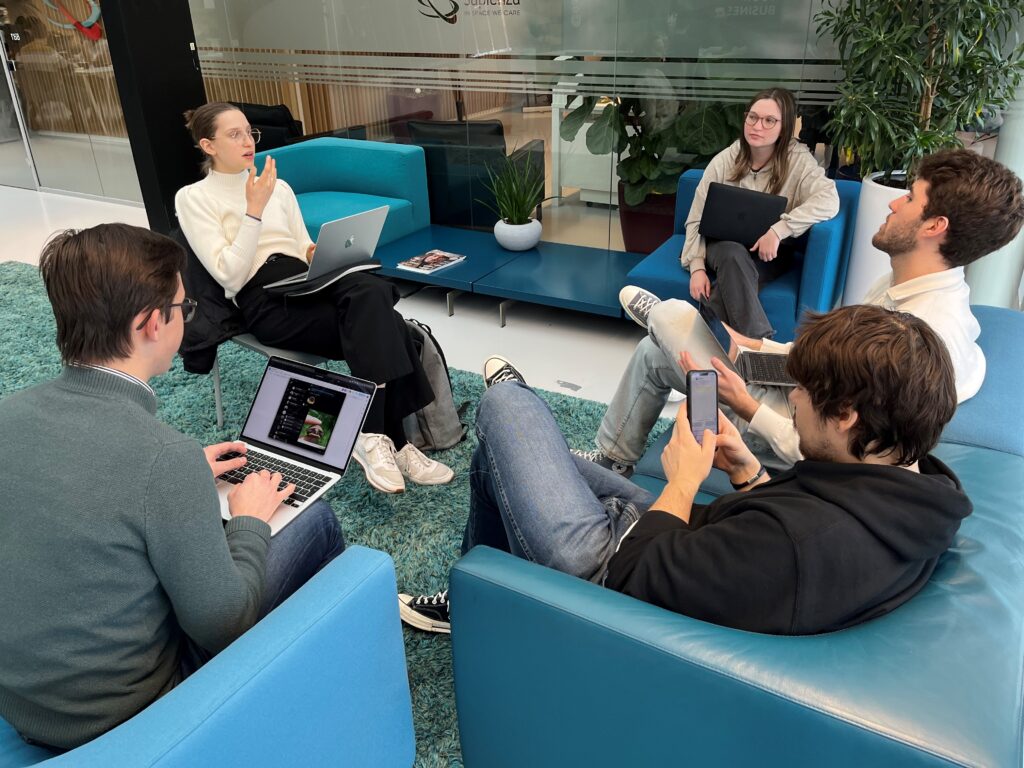
Challenges set: countdown to final presentations
This year, there were 8 challenges set, which covered innovative space tech solutions related to education and energy, among others. The challenges were offered by Turtle Island Space and ZemQuest, as well as LDE (Leiden–Delft–Erasmus universities), ESA BIC, the ESA Technology Broker NL, NL Space Campus and SBIC Noordwijk.
On the afternoon of day 1, the students were split into groups to work on the challenges. It was at this point that the teams dispersed around the SBIC hub to really dive into their assignments. The buzz of creativity was abundant – in the atrium, on the couches behind the satellite, in every meeting room and upstairs in the new Spark Hub – as the students began their research and put in place a plan of action. This included holding several interviews with various representatives of the challenge owners for the 2 days.
Energy challenge: Green energy was the focus of one challenge from ZemQuest, when students were asked to deliver a market penetration strategy for electric vehicles suitable for a key regional location, such as Schiphol airport. The Leiden-based company is working to bring emission-free and sustainable electrification for industrial mobility and long-range electrical aviation with aluminium–air batteries, which could be used for space applications. The batteries are also an economical alternative to diesel, for the electrification of heavy-duty vehicles, and the company aims to offer full-cycle infrastructure and service. zemquest.com
With a focused determination, the student teams worked quickly and efficiently so that, on the Friday afternoon, they could present their findings and recommendations to all the clients and the accompanying delegation in a plenary session. This exchange allowed students to apply theoretical concepts learned in the classroom to practical, industry-specific problems, enhancing their understanding of how academic knowledge translates into real-world applications.
Fruitful collaboration
Taking to the stage to present their solutions gave the students the chance to highlight new marketing and business potential for every challenge owner. The dedication and creativity of these students was remarkable and made a lasting impression on everyone present.
“I was in awe at the speed of how these talented students got to grips with the challenge and how they managed to identify a promising new market that we will be investigating further,” Brian Treacy (founder of Turtle Island Space) enthused. “It was refreshing to work with people 10 years younger than I am and from a different field.”
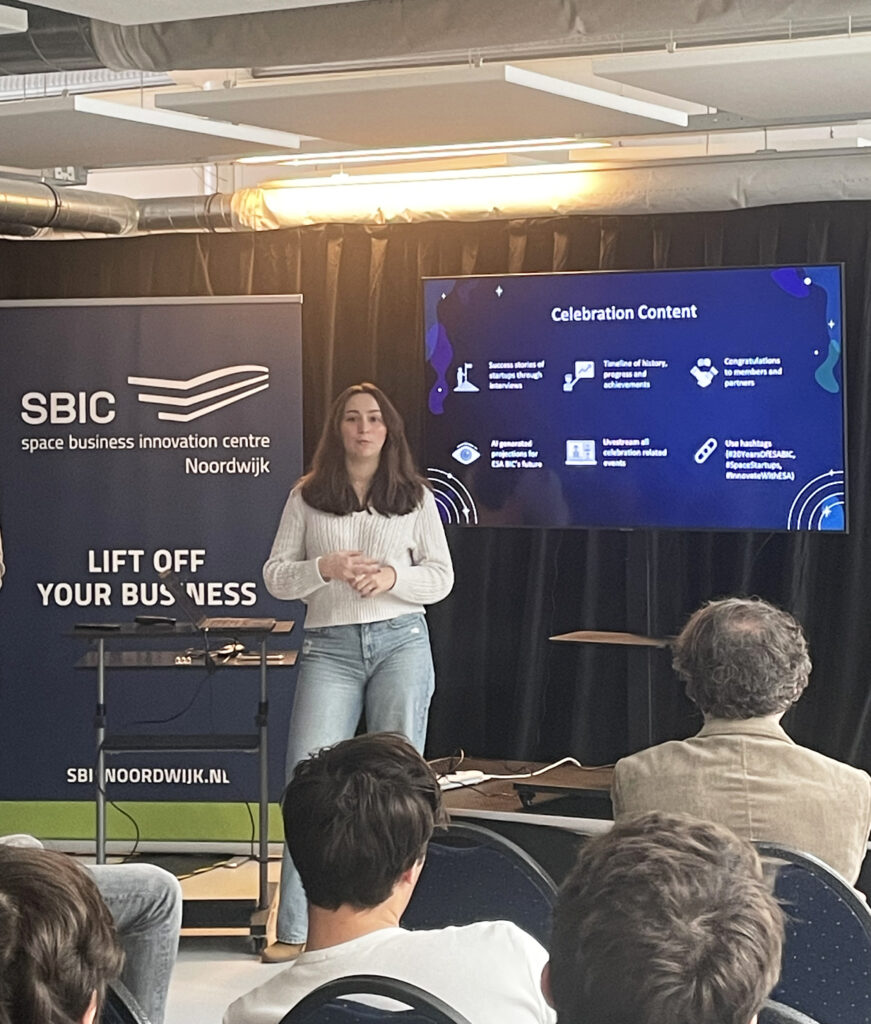
David de Haas, chief marketing Officer at ZemQuest, was also enthusiastic: “We were impressed to see these students tackle the complex challenge of devising a go-to-market strategy for our aluminum batteries at Schiphol airport. We see a bright future for these keen young minds and look forward to welcoming them to join us on our quest for zero emissions.”
Focusing on the successful ongoing collaboration with RSM Erasmus University, Martijn Leinweber (COO of SBIC and programme manager of ESA BIC) commented: “The interaction of the students with the startups was complementary and, once again, new perspectives emerged that can be implemented into business ideas. We are already looking forward to see what will emerge from next year’s event.”
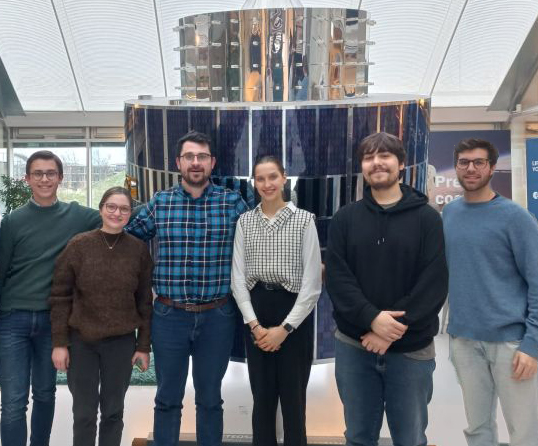
Companies interested to set a business challenge at the next event, get in touch.
ABOUT ESA BIC NOORDWIJK: In the ESA BIC programme, space startups get up to €60,000 zero-equity funding for the development of their idea, receive technical support by ESA or partners and get extensive business support by SBIC. esa-bic.nl
